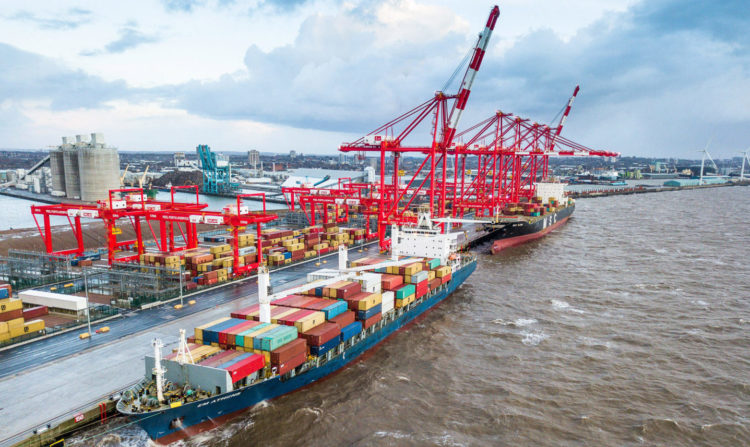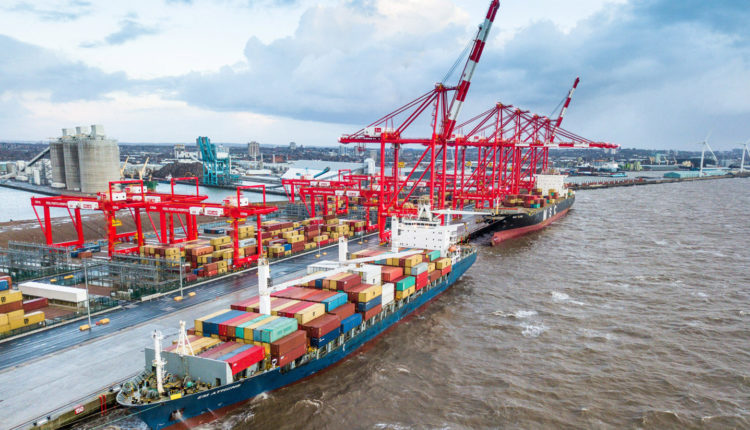Liverpool could help solve UK ports crisis
Ports giant Peel Ports says it is ridiculous such a huge volume of imported goods are being delayed at South East ports adding ports such as Liverpool can help alleviate the crisis. Tony McDonough reports

Britain’s logistics crisis could be alleviated by making more use of ports outside the South East of England such as Liverpool, Peel Ports said.
The owner of the Port of Liverpool says while bottlenecks are building up at ports in the South East, the UK’s wider network of 120 commercial ports is under-utilised. Last week shipping giant Maersk diverted ships away from Felixstowe due to the crisis.
Factors such a shortage of HGV drivers are causing backlogs at major ports. But the problem is exacerbated by the sheer volume of goods that are imported through a small number of ports. Felixstowe alone handles 36% of all containers coming into the UK.
The crisis is threatening supplies to supermarkets and other major retailers in the run up to the critical Christmas trading period. There are widespread fears of more empty shelves as the festive season approaches.
Peel Ports is the UK’s second-biggest part operator. As well as Liverpool, the company also operates facilities at Heysham, Port Salford (via the Manchester Ship Canal), Medway (Sheerness / Chatham), Clydeport and Great Yarmouth.
According to Maritime UK, the UK ports industry handles 95% of UK import and export by volume. Despite the large number of ports in the UK, much of the freight traffic is concentrated among a comparatively small percentage, with the top 20 ports accounting for 88% of the total.
David Huck, managing director of group ports at Peel Ports, said: “It might raise eyebrows that we’re encouraging companies to use competitors as well as ourselves, but these are exceptional times. Brexit, COVID and the long-standing HGV driver shortage are all combining to challenge the supply chain like never before.
“Congestion in southern ports has long been an issue and there has traditionally been a huge reliance on the south to facilitate the UK’s supply chain. Currently 95% of goods enter the country via the south, yet 60% is actually destined for the north.
“We have long argued the UK is too reliant on the South East and the current climate calls for a serious rethink on the future of alternative regional ports being used as points of entry and exit.
“The UK has excellent coverage throughout the country of ports for every size vessel and every commodity. We need to take full advantage of this by moving goods by sea as much as possible and doing so closest to their point of origin or their destination.
“That will reduce the pressure in congested areas and allow us to better use both the supply of haulage services and the road network. That is in everyone’s interests.”
Peel Ports has invested around £1.2bn worth of infrastructure into its ports across UK and Ireland, to prepare for increased demand and pressures on the supply chain.
Investments include £750m into the Liverpool2 container terminal, Brexit contingencies for HGV trailers, new rail connections to major UK city hubs and a heavy recruitment campaign to increase labour.
This investment has helped to attract more services to Peel Ports’ facilities. Following a successful trial earlier this year, DKT Allseas announced that its China Xpress liner service will become a permanent route into Liverpool, complimented with the introduction of a new onward rail service into Freightliners Birmingham terminal.

